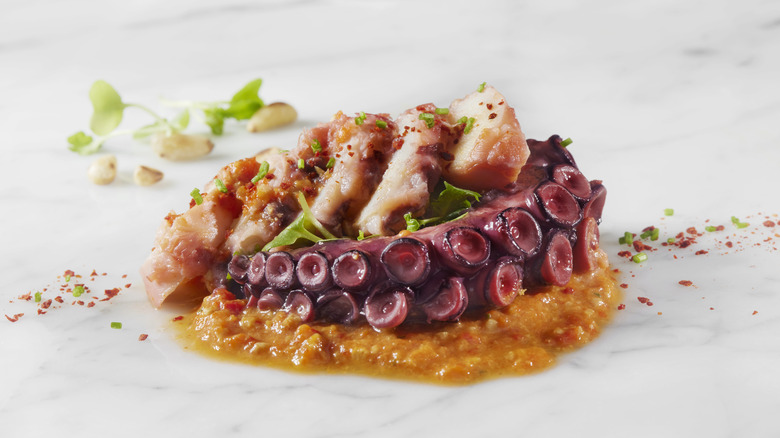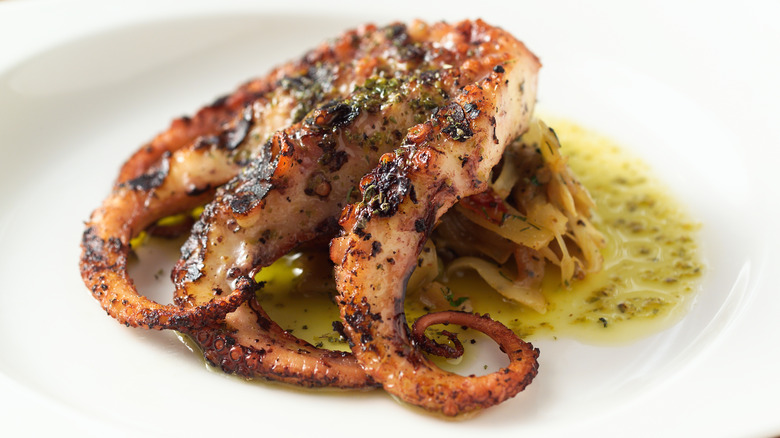The Traditional Italian Myth Behind Cooking With Wine Corks
Cooking with wine is one thing, but cooking with a wine cork? As it turns out, this debate has sparked an impassioned schism in the world of Italian cuisine.
According to Food & Wine, many cooks use wine corks in their recipes because of an old Italian wives' tale that says adding a cork to a pot of tough meat or fish, mainly octopus, will help make the meat more tender. Octopus is largely eaten in Spain, Portugal, and Japan, where it can be acquired easily along the coast. Many octopus recipes from these cultures date back generations, so a lot of them are closely tied with myths and archaic practices still in use to this day.
Because octopus is so difficult to tease a delicate texture out of, many chefs across different cultures have developed questionable tactics for tenderizing their tendrils, including cooking them in copper pots or beating them against rocks. (Some chefs allegedly even put them through the washing machine.)
Why is octopus so hard to cook?
Octopus is famously difficult to cook — it can easily come out with the consistency of a car tire if it isn't appropriately prepared. Like squid and cuttlefish, octopus is a cephalopod, with tough flesh that retains a lot of moisture, making it imperative to dry the flesh out somewhat before cooking to prevent it from getting rubbery.
Octopus tentacles are full of tough muscle fibers and collagen, which needs to be broken down, or else it will stay chewy. When done right, octopus should have an al dente texture, tender with just the right amount of chew, and perhaps a delicate crispy exterior.
Octopus is generally cooked either very slowly (using a pressure cooker or sous vide) or very quickly (generally on the grill). To know if your octopus is sufficiently tender, slice it with a paring knife to see if it cuts easily. If it does, you'll know it's ready to eat.
Why do people use wine corks to cook octopus?
Adding a wine cork to a pot of octopus is a technique usually associated with Italy and Portugal. According to fans of this trick, the wine corks dry out the octopus using enzymes found in cork.
Corks are usually added to a pot along with the octopus, filled with boiling water, then covered and simmered for half an hour. Some recipes call for one cork per two pounds of octopus, while others recommend one cork per quart of water.
Some famous chefs, such as Bobby Flay, swear by this trick — but other chefs aren't so convinced. It might work as something more like a good luck charm than a culinary miracle cure. At the end of the day, properly cooking your octopus and making sure your octopus is high-quality and sourced from a reputable buyer is the most important thing you can do to keep it juicy and tender.



